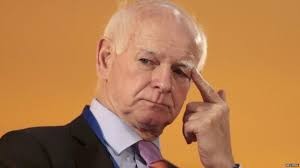Cynics and political opponents say that it has more to do with the Mayoral elections in London where Zac Goldsmith, the Conservative candidate, opposes a third runway at Heathrow; the election is next May. And we should note in passing that Nick Clegg, the erstwhile leader of the Liberal party and former Deputy Prime Minister in the Coalition Government, writing in The Evening Standard last week said that all the logic points to Gatwick.
As time passes, this decision becomes more, not less difficult to take. Why? Because as time moves on, things change. It is not as though Sir Howard Davies and his fellow commissioners ignored environmental issues. Their full terms of reference are too wordy by far to bear repetition here, but they include the following: “The Commission should base the recommendations in its Final Report on a detailed consideration of the case for each of the credible options. This should include the development or examination of detailed business cases and environmental assessments for each option, as well as consideration of their operational, commercial and technical viability”. They were expressly required to carry out environmental assessment. (As if anyone in the United Kingdom would make a recommendation for a new runway without doing that.) The Commission was established ostensibly to look dispassionately and objectively at all the issues, including economics, and come up with a recommendation. It took environmental factors into account. If we now send the issue off to look only at environmental factors (already addressed by the Commission) then we send it off to what Bernard Levin over thirty years ago called “the single issue fanatics”. Surely the point of the Airports Commission was that it was to look at matters in the round, and make a balanced recommendation. (Which is why it is disingenuous of Nick Clegg to claim that the logic all points to Gatwick.)
Or is Number 10 saying that Sir Howard and his fellow commissioners forgot the environmental part of their brief?
I would be surprised. Their report is 344 pages long and the Environmental Assessment section is over ten per cent of that. Not even a moron in a hurry (to re-use another phrase from the 80s) could forget that. Or is the problem that something else has come up? For example, in October, Clean Air London published the opinion of Robert McCracken QC about the Air Quality Directive. The argument is that since the UK is in admitted breach of the Directive and the Treaty on the Functioning of the EU requires Member States to refrain any measure that would jeopardise the attainment of the Union’s objectives, any planning consent which would worsen the existing position in the locality or cause a new breach should not be issued. If that is an influential factor in Number 10’s approach, then first, Robert Mc Cracken QC and Clean Air London should be very pleased with their reach. But second, we see the results of prevarication.
What is actually happening here? It seems to me that the truth is that politicians are simply unwilling to take the decision. When I was a young assistant solicitor at Herbert Smith, Andrew Congreve, then the head of the property department, reminded us that whilst there is moral good in making a good decision, there is a moral good just in making a decision. Prevarication simply creates problems. Things change. It creates uncertainty. And with uncertainty, other decisions become more difficult. Paradoxically, it is better to take even the wrong decision than not to decide. But it is unlikely that The Airports Commission made the wrong recommendation. Not after expenditure of £20 million or so on their work.
The other paradox is that the Government knows this. Less than three months ago I wrote on this blog about the Treasury publication “Fixing the Foundations” that: ‘“Fixing the Foundations describes [the problem] like this: “Previous studies have found that the country’s planning system –where development proposals require individual planning permission and are subject to detailed and discretionary scrutiny –can create the sort of “slow, expensive and uncertain process” that reduces the appetite to build.” Government is now committed to removing all unnecessary obstacles to the redevelopment of brownfield land, “including these sorts of planning obstacles”’. But it is not committed to doing that when it comes to airports. We should recognise that we are not yet at the planning application stage on the airport capacity issue. The Government is simply struggling even to formulate a policy on where the capacity should be increased. When (if?) the application comes forward it will be exhaustively scrutinised under either the Development Consent Order process of the Planning Act 2008 or a Hybrid Bill, which will of course and quite properly require environmental assessment. Under Labour’s Planning Act 2008 – as amended by the Coalition Government – the final decision lies with the Secretary of State. In the original (Labour Government) form of that Act, once the policy was set, the decision was out of politicians’ hands. Instead, the Infrastructure
Planning Commission had the final say, meaning that the final decision lay with technocrats rather than democrats. That Act was the product of political exasperation with the three and a half year public inquiry into Heathrow’s Terminal Five. But the real reason the T5 inquiry took so long was the absence and then change of Government policy.It is a rich and sad irony that the Government still cannot make the necessary airports policy. The technocrat approach passed the buck. Responsibility for these most controversial of decisions which impinge on the day to day lives of thousands should lie with politicians, the democratic approach in other words. But that requires politicians willing to take unpopular decisions in what they honestly believe to be the public good. Are the democrats up to the job?




Leave a Reply